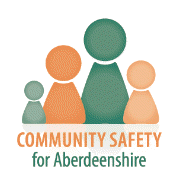
 |  |

|
CSG Home page
|
|
Elderly targeted by scammersFollowing reports of two elderly men being scammed in the Grampian area, Police Scotland is encouraging you to discuss the risk of fraud and scamming with elderly relatives, friends and neighbours. This advice comes after an elderly male in Aberdeen was scammed out of £20,000. Criminals contacted the victim by telephone and persuaded him to buy online gift cards as part of an elaborate investment scam. In a separate incident an 81 year old male from Aberdeenshire was phoned by criminals pretending to be from the fraud department at his bank. The scammer then told him to withdraw £2750 in cash from his bank with instructions to inform bank staff it was for a 'kitchen renovation.' He was then told to post the parcel and to tell staff it was a cash gift for a family friend. These criminals are experts at what they do. They can spend a great deal of time researching their victims or will use generic information to get a 'hook' ie the name of the bank. As the method of contact in these cases was by telephone, older people could be more at risk of falling prey to these scammers as they are often at home to answer the calls. The bank, Police, HMRC or anyone claiming to be from a ‘specialist fraud department’ will never call out of the blue, or advise of fraudulent activities in the bank and ask for assistance. All phone calls like this are a scam. Adult Protection Officer Alison Lynch said: "Family and friends should try and have the conversation about scamming, but sometimes it is difficult for people to discuss money or think that they have been scammed, particularly if they are older. Therefore it is vitally important to look for any signs that someone is being scammed. This can be a change in spending habits or appearance or that they seem anxious or fearful when the phone rings. It can be extremely difficult for anyone to think that they have been scammed and can be ashamed or embarrassed to think that it happened to them, but this should not be the case. These people can are extremely plausible, will sound genuine and go to great lengths to convince people that they are genuine." If anyone receives a phone call that they are not sure about, stay sceptical and seek advice from family, friends or the bank. If no personal details are given out, your money will be safe. Call the bank to put your mind at ease by using 159 from a home phone or mobile. This guarantees a secure line to the bank to be able to verify phone calls. For more information, read the document "Avoiding Scams" from Age Scotland HERE Original message sent by Michael Urquhart (Police Scotland, PC, A Div - North East Crime Reduction Team) Top of page | CSG home page |
